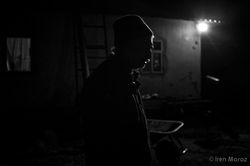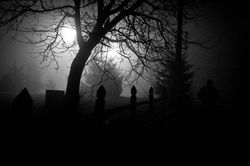 |  |  |
|---|---|---|
 |  |  |
 |  |  |
 |  |  |
 |  |  |
 |
Sheva Viktor Fedorovych Shevchuk. He has no family of his own. After serving in the army, he worked as a mechanic in a cinema club. In the mid-90s, when the country's leadership changed, Sheva became an electrician. At that time, salaries were paid in products. Usually, they were delicacies: sausage, fresh white bread, out-of-season tomatoes and cucumbers, as well as watermelons and melons. In the autumn, sugar and green buckwheat were given in bags. In the early 2000s, on New Year’s Eve, he lost his roof over his head. His drunken mother left home, leaving a kerosene lamp burning. The lamp fell and sent both the house and all its belongings to the afterlife, among which the most mourned were the documents for the house, passports, and the equipment that Viktor had been given to repair by the villagers. After the fire, he lived with his brother, then with local dacha owners. The tragedy left a deep mark on Sheva’s soul, and he began drinking heavily. When, some time later, drunk and nearly freezing to death in the winter streets, he came to his senses. He started fixing electrical equipment again and replacing electrical wiring in the homes of new residents. In 2010, he participated in local elections. They gave him ballots even without a passport because he was a very well-known and indispensable master for the whole village. © Iren Moroz